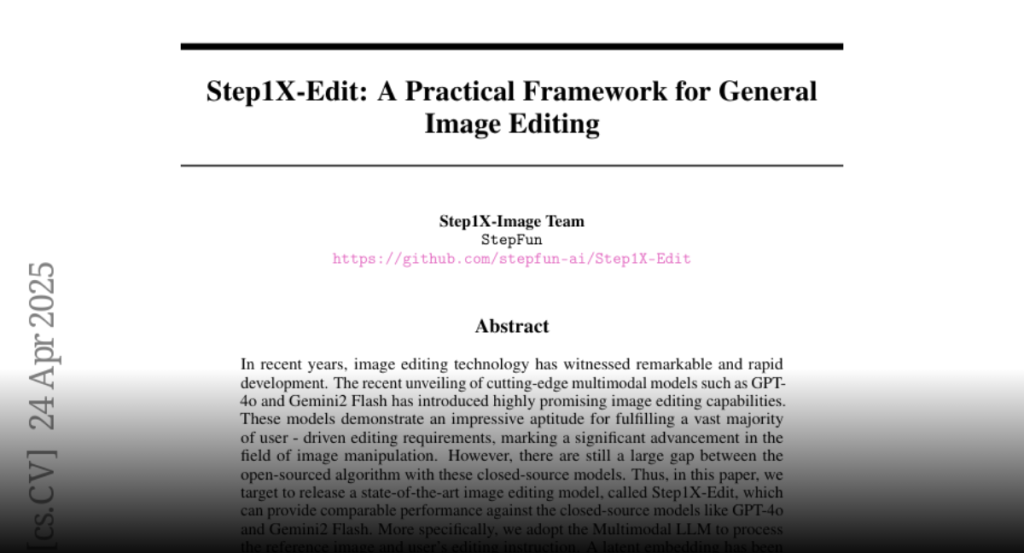In recent years, image editing models have witnessed remarkable and rapid
development. The recent unveiling of cutting-edge multimodal models such as
GPT-4o and Gemini2 Flash has introduced highly promising image editing
capabilities. These models demonstrate an impressive aptitude for fulfilling a
vast majority of user-driven editing requirements, marking a significant
advancement in the field of image manipulation. However, there is still a large
gap between the open-source algorithm with these closed-source models. Thus, in
this paper, we aim to release a state-of-the-art image editing model, called
Step1X-Edit, which can provide comparable performance against the closed-source
models like GPT-4o and Gemini2 Flash. More specifically, we adopt the
Multimodal LLM to process the reference image and the user’s editing
instruction. A latent embedding has been extracted and integrated with a
diffusion image decoder to obtain the target image. To train the model, we
build a data generation pipeline to produce a high-quality dataset. For
evaluation, we develop the GEdit-Bench, a novel benchmark rooted in real-world
user instructions. Experimental results on GEdit-Bench demonstrate that
Step1X-Edit outperforms existing open-source baselines by a substantial margin
and approaches the performance of leading proprietary models, thereby making
significant contributions to the field of image editing.

